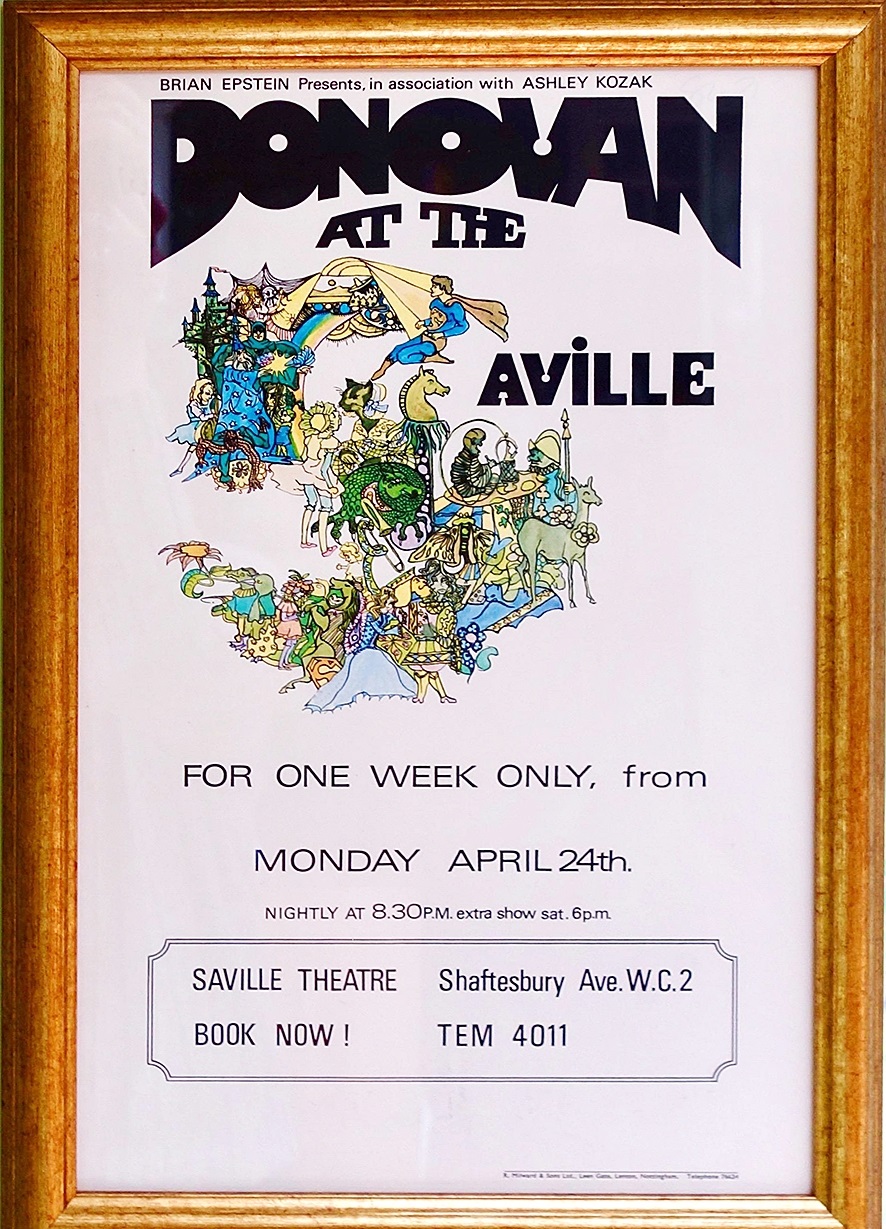Exklusiv förhandsvisning av ’Let It Be’ för BIC-medlemmar!
The Beatles Information Center bjuder in till förhandsvisning av ’Let It Be’
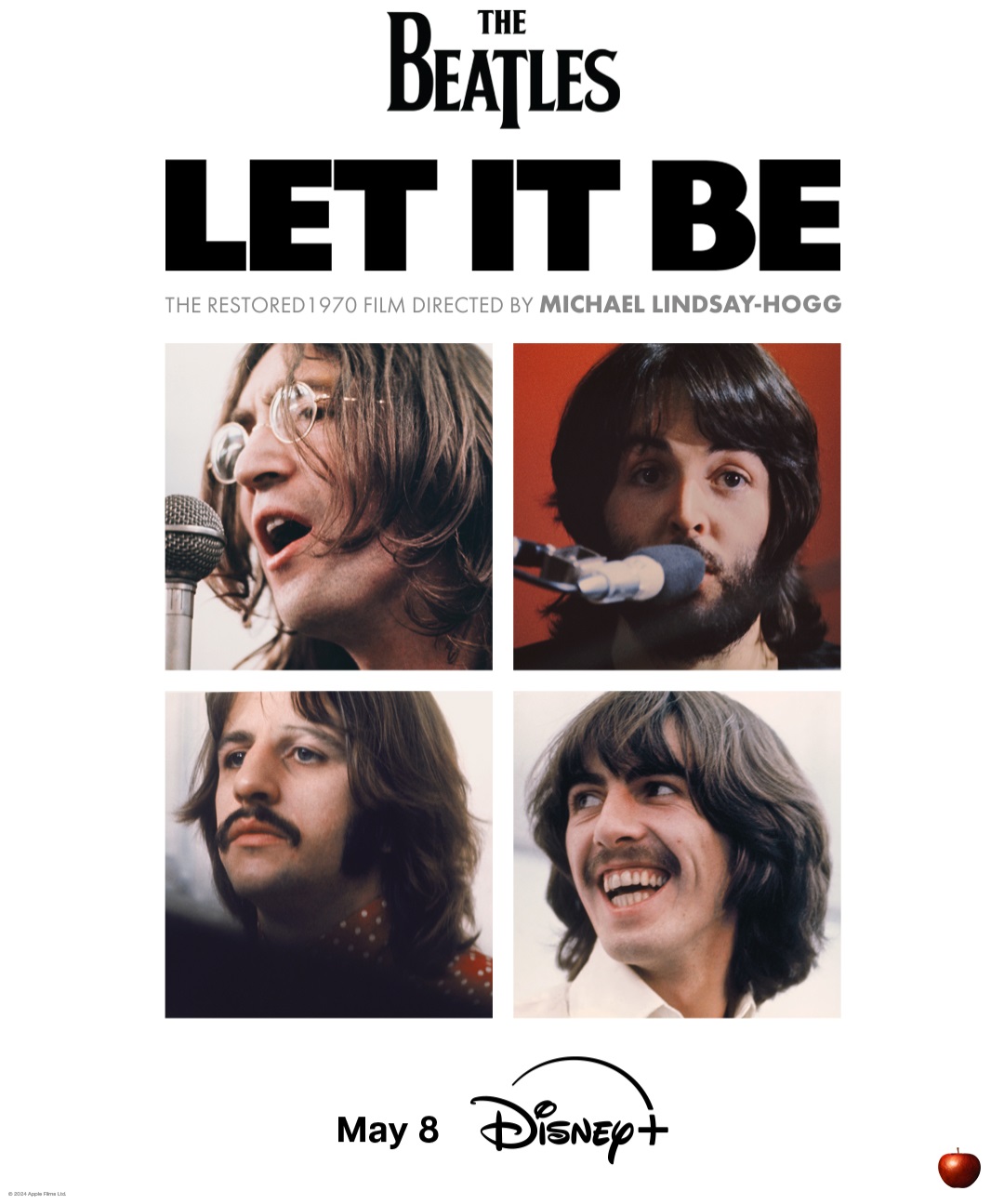
Michael Lindsay-Hoggs film Let It Be från 1970 har sedan en tid tillbaka restaurerats av Peter Jackson och hans medarbetare i Park Road Post Production. Filmen får förvisso premiär på Disney + den 8 maj, men du som medlem i The Beatles Information Center kan få se filmen redan tisdagen den 7 maj 2024 i och med detta erbjudande.
Den nyrestaurerade versionen av dokumentärfilmen Let It Be från 1970 kommer att förhandsvisas på biografen Capitol på Sankt Eriksgatan 82 i Stockholm dagen innan den blir tillgängliga att streamas på tv-kanalen Disney + (den 8 maj).
The Beatles Information Center har fått 75 platser till föreningsmedlemmarnas förfogande, vilket vi är mycket glada över att kunna erbjuda våra medlemmar.
Du som är intresserad av att komma på förhandsvisningen tisdagen den 7 maj 2024 anmäler dig via mejl till info@beatlesnytt.se snarast, dock senast den 6 maj kl. 24.00.
Det är först till kvarn som gäller, så de första 75 medlemmarna som anmäler sig kommer att få se filmen innan den visas på Disney + . Popcorn och dricka ingår och visningen är gratis!
Dörrarna öppnar kl. 17:00 och filmen beräknas börja mellan kl. 17.30.
De som eventuellt anmäler sig för sent för att kunna komma med kommer att få information om detta via mejl innan den 7 maj.
Sammanfattning:
Var: Biografen Capitol på Sankt Eriksgatan 82 i Stockholm.
När: Tisdagen den 7 maj 2024
Pris: Entrén är gratis och dessutom kommer det att bjudas på popcorn och dryck.
Portarna öppnar kl. 17.00.
Filmen börjar kl. 17.30.
Kom i tid!
I nedanstående video kommer du att få ta del av intressant information om varför du bör se Michael Lindsay-Hoggs Let It Be, trots att du förmodligen redan sett The Beatles: Get Back. Peter Jackson hade som bekant tillgång till samma material som Michael hade använt sig av i filmen från 1970, MEN han använde inte samma filmbilder i sin egen film The Beatles: Get Back. Peter använde sig istället av andra vinklar vid liknande scener, så här finns en hel del som du inte har sett tidigare och framför allt inte med det förbättrade ljudet och klarheten i bildmaterialet.
Dessutom har Peter Jackson sagt att hans film The Beatles: Get Back är ett komplement till Michaels originalfilm och inte någon form av ersättning för Michaels film. Filmmaterialet, som nu är restaurerat på samma sätt som The Beatles: Get Back, blir därmed ett intressant och sevärt komplement till dokumentärfilmen Let It Be.

Videon nedan har speltiden 3 minuter och 38 sekunder.
The Beatles – Detta händer den 27 april 1967
Inspelning och mixning av ’Magical Mystery Tour’ fortsätter
Work continued on the ‘Magical Mystery Tour’ song during this session, with the addition of more vocals and some initial mono mixes.
Därefter skapade man fyra monomixningar för demonstrationsändamål som spelades in på acetatskivor. Förmodligen för att George Martin skulle kunna förbereda ett arrangemang för trumpeterna. Dessa mixningar innehöll McCartneys sång med artificiell dubblering (ADT) av sången samt med en högre piano under slutet på låten, den så kallade codan.
Ringo Starrs nya EP och info om vår- och höstturné 2024
Ringo Starr är verkligen i ropet just nu med såväl skivsläpp som vår- och höstturné.
Ringo Starr är på gång med sin fjärde EP – Crooked Boy, som kom ut fysiskt i samband med vårens Record Store Day, lördagen den 20 april 2024.
Dock var han och låtskrivaren Linda Perry närvarande två dagar innan på Amoeba Music i Hollywood för att lansera den nya EP-skivan.

Linda Perry och Ringo Starr i musikaffären ’Amoeba Music’ i Hollywood den 18 april 2024.
Och så här såg det ut när Ringo Starr kom till butiken i Hollywood – speltid 2 minuter och 45 sekunder:
Snart ger sig Ringo och hans All Starr Band ut på en vårturné med tolv konserter som börjar den 22 maj och slutar den 9 juni. Sex av dessa konserter är på The Venetian hotel and casino i Las Vegas, så det blir inte så mycket resande som det har varit tidigare.
Och samtidigt informerar Ringo om sin kommande höstturné som går av stapeln i september 2024.

Turnéaffichen för konserten den 18 september 2024 på ’Chevalier Theatre i Medford, Massachusetts.
Även höstturnén är lite nedtonad, eftersom den inkluderar bara tolv konserter, varav nio är annonserade nedan. Ringo Starrs All Starr Band består av, förutom honom själv, Steve Lukather, Edgar Winter, Colin Hay, Warren Ham, Hamish Stuart och Gregg Bissonette.
Här är de nio hittills annonserade höstkonserterna i Nordamerika:
September 2024
12 på The Astro Amphitheatre i Omaha, Nebraska
14 på Performing Arts Pavillion @ The Commons i New Lenox, Illinois
15 på Fraze Pavilion i Kettering, Ohio
17 på The Anthem i Washington DC
18 på Chevalier Theatre i Medford, Massachusetts
20 på Mohegan Sun Arena i Uncasville, Connecticut
22 på Fallsview Casino Resort i Niagara Falls, Ontario, Kanada
24 på TD Pavilion at the Mann i Philadelphia, Pennsylvania
25 på Radio City Music Hall i New York City, New York
The Beatles – Detta händer den 26 april 1967
Inspelning av låten ’Magical Mystery Tour’ fortsätter
Därefter gjorde man ännu en reduktionsmixning för att frigöra mer utrymme på två av bandets fyra spår. Därmed hade man plats för ytterligare överdubbningar nästa dag och den 3 maj 1967.
Geoff Emerick:
Under dagen diskuterade bandet några detaljer om en tv-film som skulle ackompanjera låten de spelade in. Paul tog med sig en rollsättningsbok till studion som han hade fått från en filmbyrå, och alla samlades runt Paul och valde ivrigt ut de skådespelare de ville ha med för att spela de olika karaktärerna. Medan de tittade igenom boken och bläddrade i blad hade alla jättekul och utbrast: ”Titta på honom! Kolla på henne!” De var särskilt roade av bilderna på den tjocka damen som så småningom spelade Ringos faster Jessie: ”Hon är fyra gånger din storlek, Ring!” – Lennon skrattade glatt.
”Vid tvåtiden på torsdagsmorgonen hade Beatles skrivit klart huvudmusiken och lagt till ett andra spår med basgitarr, osammanhängande skrik, utrop och trummor. Efter detta lades låten till Magical Mystery Tour-albumet på hyllan.
The Beatles – Detta händer den 25 april 1967
Recording: Magical Mystery Tour
The Beatles hade därmed på allvar börjat med titellåten till sin nästa film, trots att man ännu inte släppt albumet Sgt.Peppeer’s Lonely Hearts Club Band.
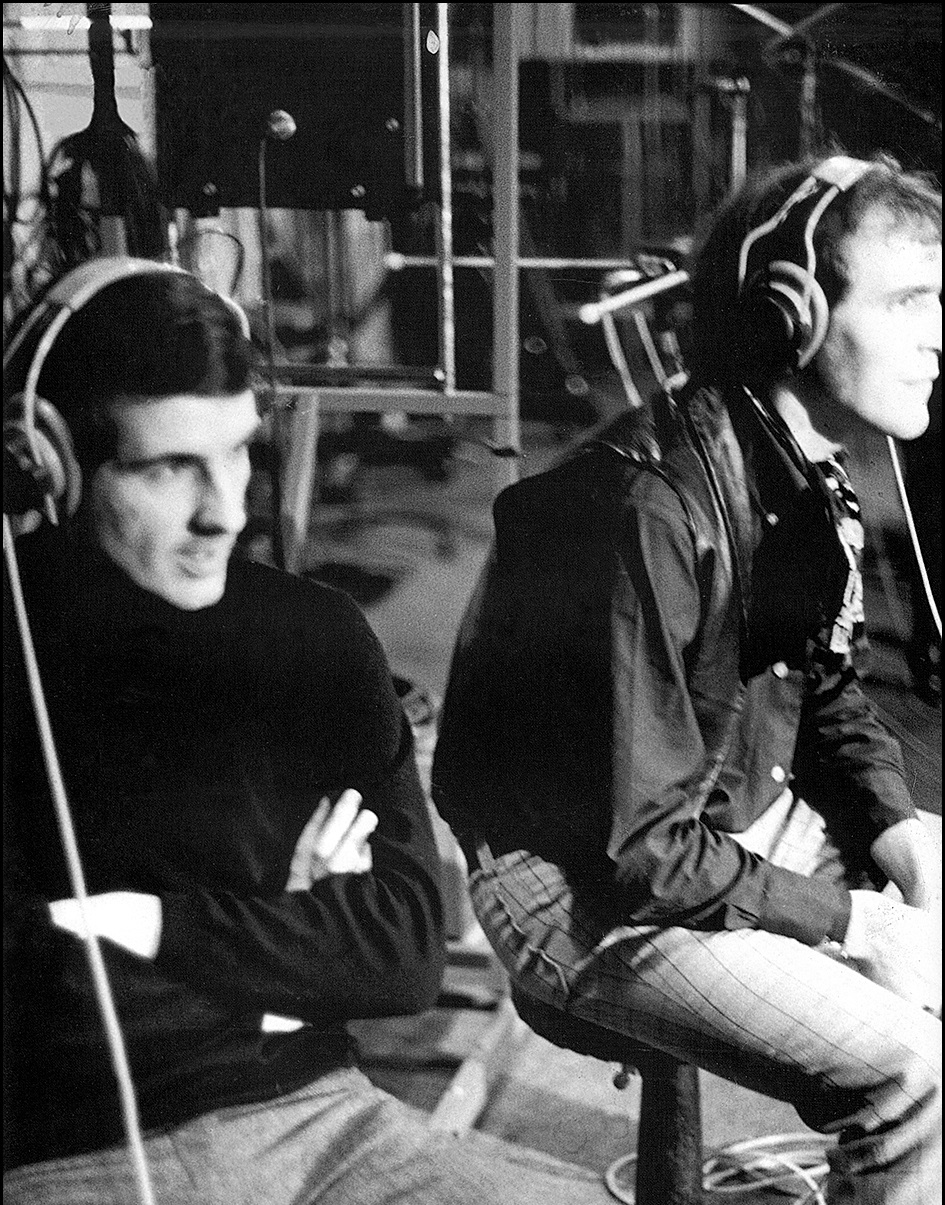
I studion var också författaren Hunter Davies och Neil Aspinall.
Efter det att man var nöjd med tagning tre skapade man fem reduktionsmixningar för att frigöra extra spår på inspelningsbandet. Den sista av dessa fem reduktionsmixningar, numrerad som tagning åtta, användes till kommande överdubbningar under de kommande inspelningsdagarna. The Beatles samlade också ihop en bandloop innehållande trafikljud, som man tog från EMI:s ljudarkiv på band nummer 36 som hade etiketten Traffic Noise Stereo.
Ljudteknikern på EMI Stuart Eltham berättar:
Jag spelade in dessa ljud medan jag lutade mig över en bro på motorväg M1. Det var en lugn söndagseftermiddag för endast på helgerna var det möjligt att spela in ljudet från enskilda bilar. Alla andra dagar var allt som kom ut på film trafikbuller.
Geoff Emerick berättar vad han gjorde med bandet:
Jag förvandlade dem till en ljudslinga som innehöll ljudet från bussar som passerade i bra stereo, panorerade från höger till vänster.
Dessa ljud lades till under den slutliga mixningssessionen som kom att äga rum först den 7 november 1967.
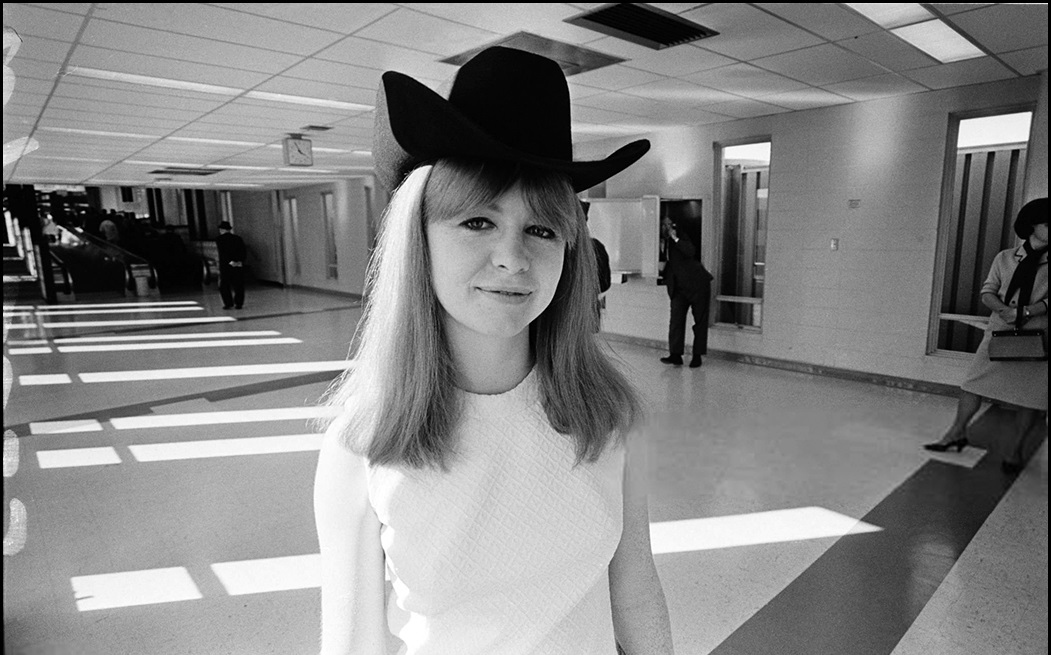
Jane Asher i Dallas, Texas den 25 april 1967. Foto: Harry Benson.
The Beatles – Detta händer den 24 april 1967
Paul McCartneys ’Love In The Open Air’ släpps i USA
Denna måndag liksom alla andra måndagar släpptes det skivor i USA. Den här måndagen kom det ut en singel med låten Love in The Open Air, skriven av Paul McCartney för filmen Family Way och framförd av George Martin And His Orchestra. Singeln kom ut i UK redan den 21 december 1966. På baksidan finns stycket Theme From ”The Family Way”, också skrivet av Paul McCartney.
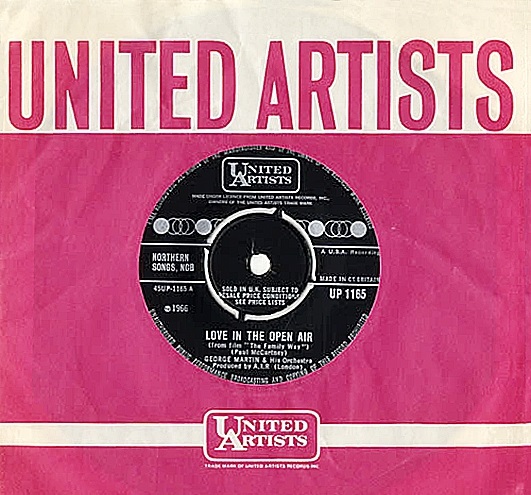
Love In The Open Air kom utpå United Artists med skivnummer UP 1165.
George Martin:
Och naturligtvis kunde jag inte bara använda blåsbandsmusik eftersom det var en lugn film, en familjefilm och jag behövde ett romantiskt tema. Det var allt han [Paul] gav mig. Jag gick fram till honom och sa: ”Hör du, du måste ge mig fler låtar. Jag menar, mina skisser räcker inte för att skapa temamusiken till den här filmen.” Han svarade: ”Okej, kom in.” Och han började arbeta från sitt hem, ett kvarter bort, på Cavendish Avenue, inom gångavstånd från EMI Studion. Jag kom in och han skrev en låt med John Lennon för skivan, inte för filmen. Han bad John om ursäkt: ”George vill att jag ska göra det.” Och han skrev genast en kort vals. Mycket söt – ”Love in the Open Air ” – Jag svarade: ”Det är det!” Det här är precis vad du behöver! Tack. Vi ses”. Jag tog hans verk och gick för att komponera partituren för stråkar.”
The Beatles ser ett framträdande av Donovan i London
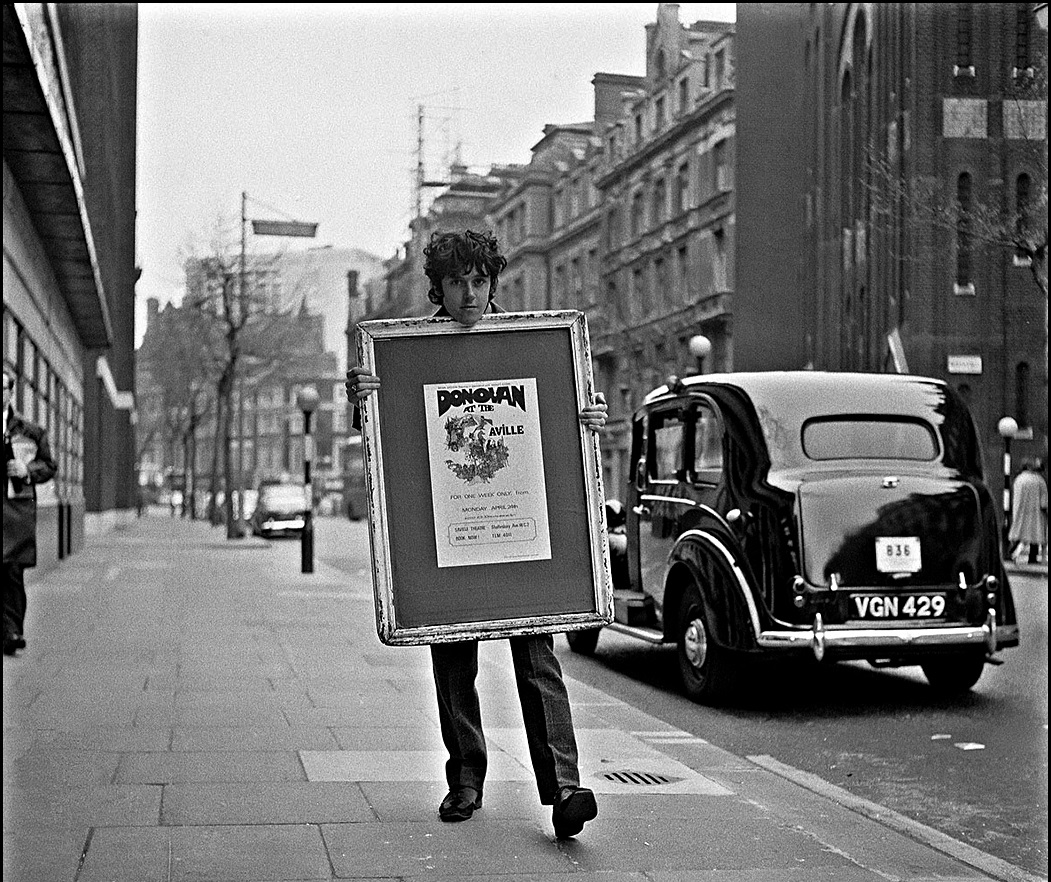
Donovan med en affisch för sin konsert utanför Saville Theatre. Foto: Alec Byrne.
